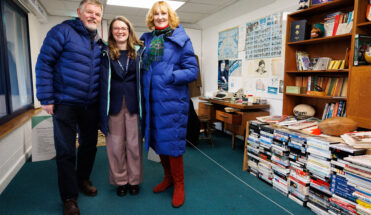Cash Boost For Grassroots Game
Chief Executive Gordon McKie will tell today’s (Saturday 27 June) annual general meeting of the Scottish Rugby Union that the past season has been one of encouraging trends – both on and off the field.Addressing delegates from Scottish Rugby’s 241 full and associate member clubs – who will have the chance to see the IRB Nations Cup won by Scotland A under the guidance of the new Scotland coach Andy Robinson last weekend – McKie will also spell out the financial benefits from welcoming additional events to Murrayfield Stadium and announce a 20% increase in club support funding for the 2009-2010 season. McKie said: “The past season has been a challenging one for Scottish Rugby. Everyone has been affected in some guise by the economic downturn, yet, thanks to our prudent management and the efforts of our staff and the wider rugby community, there are encouraging trends. We are pleased that we will once again be able to increase funding to the grassroots game in the season ahead as investment here is critical to us achieving our strategic targets.”That was welcomed by Roy Comfort, Chairman of the Forum of Scottish Rugby Supporters. He said: “Looking at the SRU accounts for the year good progress has been made in many areas of the game. FOSRS would like to congratulate the Board and all the staff on a fine showing in a difficult economic climate.”The hard work that goes on behind the scenes is very much appreciated and the results both on and of the park have been extremely encouraging. We wish the Board, staff, players and volunteers every success for the year ahead.” EventsProvisional figures suggest that the high profile events staged at Murrayfield last month – RFL’s engage Magic Weekend, the Heineken Cup and the Emirates Airline Edinburgh 7s Festival – gave a multi-million pounds boost to the Scottish economy with details expected to be disclosed next month. “Scottish Rugby wants to play an active part in communities the length and breadth of our country and through staging such events at Murrayfield we can invite supporters to witness some of the world’s best athletes and, at the same time, let others in businesses in the capital and across Scotland benefit from a very attractive programme,” McKie said.Earlier this season Napier University calculated that Murrayfield’s regular diet of Scotland matches in the RBS 6 Nations Championship and Bank of Scotland Corporate Autumn Tests, alongside Edinburgh’s Magners League and Heineken Cup matches, would be worth over£100 million to the Scottish economy, Edinburgh’s share being£50 million. McKie added: “The past year has seen Scottish Rugby bring more than£100 million of economic benefits to the wider Scottish community and, of course, that’s very encouraging. But what we find even more heartening is the growing number of young people across an ever widening number of communities in Scotland who we are introducing to rugby.”Investment in clubsScottish Rugby has increased investment in the club game at all levels over the past two seasons and that trend will continue in season 2009-2010.A 20% rise in club support funding has been provided in this year’s budget with a total of some£1.6 million (up from£1.33 million) to cover, for example, joint development officer funding and increased payments in travel support to Scotland’s rugby clubs.Ian Rankin, Director of Rugby at Dundee HSFP, Scotland’s club of the year 2008-2009, said: “With the current economic climate affecting everybody in one way or another it’s very encouraging for all involved in club rugby to have the level of financial support from Scottish Rugby increased from last year.”This support emphasises the position of clubs as the bedrock of rugby in Scotland both in growing the game and developing the next generation of players and coaches. This funding will also make a massive difference to some of our clubs who travel the length and breadth of Scotland and are such an important part of their local community.”ParticipationAudited figures show that Scottish Rugby is also making progress in converting people who are given the chance to play the game into regular participants.McKie noted: “Our strategic plan has set a target of 38,000 players by 2012 and we have been pleased with the growth of our sport over the past year.”Since our development restructure in 2006, the total number of adults playing rugby has risen by around 21% (from approximately 24,200 to 30,500), while the number of under-18s, boys and girls now playing the game regularly across Scotland has risen by about 24% (from 15,200 to 20,000). Many thanks must go to our staff and dedicated volunteers for successfully promoting the grassroots game.”McKie hailed the partnership approach which is at the cornerstone of Scottish Rugby’s drive to win new playing recruits. “We now have 65 partly-funded development officers at work linking clubs, schools, local authorities and businesses to Scottish Rugby.”These development officers have played a key part in helping young Scots to become healthier, safer and stronger and enabled them to make a positive contribution to their communities as part of the Scottish Government’s Cashback for Communities initiative.”This scheme, whereby the proceeds from serious crime are re-invested in the communities that have been blighted by it, has seen over 15,000 primary and secondary school rugby sessions delivered to more 120,000 pupils under the street rugby umbrella in the last ten months.”FinanceOn finances McKie will report continuing stability. “We achieved an overall break-even position for the third successive year; increased our turnover by£1.6 million; and average bank borrowings for the year were£14.9 million, compared to the previous year’s average of£18.4 million. Our year end back debt of£13.3 million is significantly below the April 2008 year-end figure of£17.6 million.”Scotland teamsOn the field McKie reflected on a year of mixed fortunes for the Scotland team; the Scotland under-20 team winning six of their ten internationals and achieving a position higher than their seeding at the IRB Toshiba Junior World Cup; the Scotland 7s team winning the plate at the IRB Rugby World Cup 7s in Dubai and reaching their first ever semi-finals on the IRB World Series circuit in the final two tournaments of the season in London and Edinburgh; and the Scotland Women’s team qualified for the 2010 Rugby World Cup in England through emerging unbeaten from the 2009 FIRA European Championships. He said: “Last weekend in Romania Scotland A won the IRB Nations Cup, a fitting start to Andy Robinson’s reign as national coach. I look forward to working with Andy and his team as we build towards the 2011 Rugby World Cup in New Zealand and also thank Frank Hadden for all his endeavours with the national team over the past four years.”Pro-teamsOn the two professional teams, Edinburgh and Glasgow Warriors, McKie praised Edinburgh’s second placed finish in the Magners Celtic League and reflected that both had attracted bigger crowds to their matches at Murrayfield and Firhill respectively.”Due to the hard work of both Scottish pro-teams there has been an increase in attendances of around 45%. With players returning to Scotland – including the redoubtable Chris Cusiter – and the squads boasting an exciting crop of young Scottish talent, we look forward to building on the good work over the forthcoming season,” he said. Stadium developmentsMcKie will reiterate Scottish Rugby’s commitment to maintain Murrayfield’s status as a world-class stadium. “Investment in Murrayfield continued this year with the development of the back pitch area as a consequence of the Edinburgh trams project and the Water of Leith flood defence scheme.”We now have four world-class, full-size training pitches, including a fully IRB compliant artificial pitch, which is ready for contact rugby. Within the stadium we have installed two high-spec big screens – the biggest permanent screens in a sports stadium in Scotland – alongside digital scoreboards and both developments have proved popular with supporters and event promoters,” he explained. McKie thanked Scottish Rugby’s staff and all those who are involved in the game in a voluntary capacity for their contribution to a season of “encouraging developments” and said that through a continued partnership approach there was every reason for optimism for the season ahead.
Tags
Related news
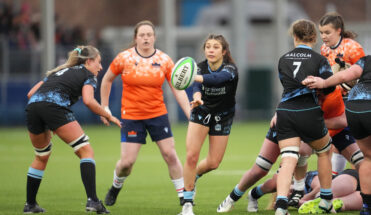
Celtic Challenge 2024/25 squads named
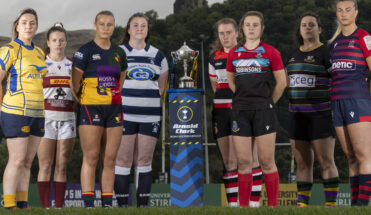
Change in details for Arnold Clark Women’s Premiership final
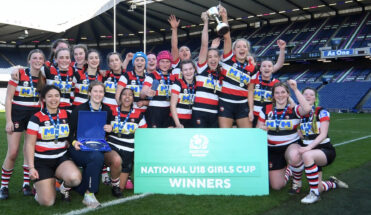
2024 National Youth Cup finalists named
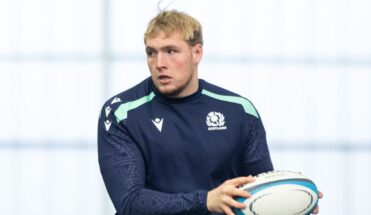
Emerging Scotland squad named for Italy match this weekend
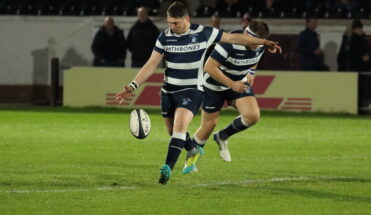
Arnold Clark Premierships feature match: Accies v Heriot’s
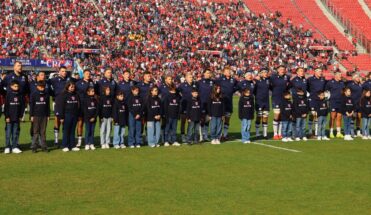
Scotland confirm 2025 summer match against Māori All Blacks

Former CEO of SP Energy Networks joins Scottish Rugby Limited Board

Boys Schools Cup Final matches set for grandstand finish
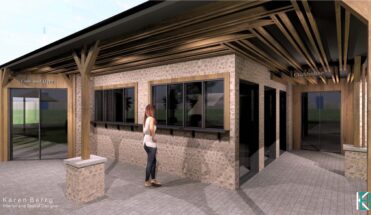
Ayr secure £250,000 from Growth and Participation Fund
